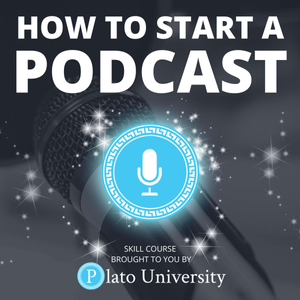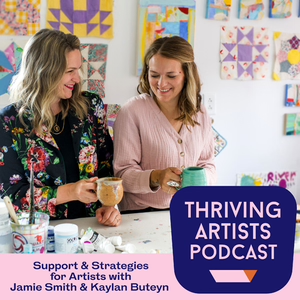![Activist #MMT - podcast - Ep154[2/2]: Dirk Ehnts: MMT makes "I can't" (provide healthcare) impossible. Also: Who gets to decide value?](https://storage.googleapis.com/goodpods-images-bucket/episode_images/d938df4907f4bbf12f956c694796b800e5451a69ab55b867a6f9c709c2629134.avif)
Ep154[2/2]: Dirk Ehnts: MMT makes "I can't" (provide healthcare) impossible. Also: Who gets to decide value?
12/30/24 • 68 min
Welcome to episode 154 of Activist #MMT. Today's part two with German MMT economist Dirk Ehnts.
(Here's a link to part one.)
Above is the episode in audio form. Below is the episode in video form:
In addition to talking about Dirk's books, we discuss two major concepts. First is the idea that a major characteristic of human beings is they really don't like saying "I want to" do something horrible. They want to instead be able to say "I must." Conversely, instead of saying "I don't want to" do something good and necessary they will do whatever it takes to say "I can't."
A simple example is when you ask a friend to join you for lunch. Today they just don't feel like going out. They don't want to say something like "I just don't want to go out with you today. I still like you a whole lot, but I'm just feeling like staying at home and vegging with my TV." They'd rather say "I can't", such as due to a family obligation or sickness ("I'm really not feeling well today").
A bigger example is those in power denying healthcare to the masses. They want to profit, but even more, they want the power. "If you quit, you'll lose healthcare for not just you, but your entire family." Instead of admitting this, they would rather be able to point to the taxpayer myth and say "I must deny you healthcare because how're you gonna pay for it?".
Understanding how the economy actually works makes it impossible to use these kinds of excuses.
The other concept we discuss is how value is decided on by those in power. I'm a full-time singer is senior centers. It disgusts me to have to discuss money. When asked what my fee is, I always respond "the best you can do, such that I can keep returning in the long term." I never give a specific number.
Some facilities have small budgets, some have large. I don't want to take advantage of them, they (at least, the activities director whom I know personally) doesn't want to take advantage of me. All I ask for is the best you can do. It's worked out well enough. I maintain good relationships and it's turned out to be financially viable, if not lucrative.
The real value of singing for seniors is far removed from money. But because I must pay taxes and bills in order to survive, that non-financial value must be translated into financial terms. The very fact that I must do this negotiation with every activities director at every facility, and that I must use great effort to confirm I've received payment after every performance (which sometimes takes a couple months to arrive), is a testament to the fact that my job makes no rich person richer. If it did, there would be systems in place to greatly reduce these burdens.
Welcome to episode 154 of Activist #MMT. Today's part two with German MMT economist Dirk Ehnts.
(Here's a link to part one.)
Above is the episode in audio form. Below is the episode in video form:
In addition to talking about Dirk's books, we discuss two major concepts. First is the idea that a major characteristic of human beings is they really don't like saying "I want to" do something horrible. They want to instead be able to say "I must." Conversely, instead of saying "I don't want to" do something good and necessary they will do whatever it takes to say "I can't."
A simple example is when you ask a friend to join you for lunch. Today they just don't feel like going out. They don't want to say something like "I just don't want to go out with you today. I still like you a whole lot, but I'm just feeling like staying at home and vegging with my TV." They'd rather say "I can't", such as due to a family obligation or sickness ("I'm really not feeling well today").
A bigger example is those in power denying healthcare to the masses. They want to profit, but even more, they want the power. "If you quit, you'll lose healthcare for not just you, but your entire family." Instead of admitting this, they would rather be able to point to the taxpayer myth and say "I must deny you healthcare because how're you gonna pay for it?".
Understanding how the economy actually works makes it impossible to use these kinds of excuses.
The other concept we discuss is how value is decided on by those in power. I'm a full-time singer is senior centers. It disgusts me to have to discuss money. When asked what my fee is, I always respond "the best you can do, such that I can keep returning in the long term." I never give a specific number.
Some facilities have small budgets, some have large. I don't want to take advantage of them, they (at least, the activities director whom I know personally) doesn't want to take advantage of me. All I ask for is the best you can do. It's worked out well enough. I maintain good relationships and it's turned out to be financially viable, if not lucrative.
The real value of singing for seniors is far removed from money. But because I must pay taxes and bills in order to survive, that non-financial value must be translated into financial terms. The very fact that I must do this negotiation with every activities director at every facility, and that I must use great effort to confirm I've received payment after every performance (which sometimes takes a couple months to arrive), is a testament to the fact that my job makes no rich person richer. If it did, there would be systems in place to greatly reduce these burdens.
Previous Episode

Ep153: Dirk Ehnts: Imposing individualism (part 1 of 2)
Welcome to episode 153 of Activist #MMT. Today I talk with German MMT economist Dirk Ehnts. He discusses his books, and the courses he teaches, including one called "Equity, Equality, and Employment" at Torrens University.
(This is part one of a two part episode. Here's a link to PART TWO.)
Above is the episode in audio form. Below is the episode in video form:
We then talk about concepts related to individualism versus community, and how society imposes individualism on all of us in many ways. One example I experience personally is how, in my home state of New Jersey, it is virtually impossible to exist without a car. Public transportation and bicycle riding is inconvenient. Everyone having a car means more cars must be produced, shipped, maintained, monitored, and etc (roads, parking, and on and on). Although this provides jobs to those who do these things, what else could all those people be doing?
Another example: Just like everyone must have a car, every homeowner is expected to have, for example, their own lawn mower. This means almost all of those mowers sit unused for most of the year, and the burden of maintaining those mowers is on every individual owner. A more community-based solution would be to share a single mower among everyone on the block. This would let the mower be heavily used all the time (but within its design limits!), and the burden of maintaining would be distributed among all those neighbors.
Having more public transportation and a community mower would eliminate jobs, but that's a good thing! These people should be doing other things! We currently have an excess of cars and mowers in order to give people jobs. As if these are the only kinds of jobs possible.
Excessive individualism, as we currently have, requires excessive resource and energy use and, ultimately, perpetual growth. This is unsustainable. It is indeed possible to employ everyone with much less resource use, but it takes imagination and a paradigm shift.
Next Episode
![undefined - John Harvey reading Contending Perspectives: Chapter 6: Post-Keynesian economics [EDITED]](https://storage.googleapis.com/goodpods-images-bucket/episode_images/ba67d68e930afda0538ce19c6a74448da3448dffd2597f924755df09a25ed81f.avif)
John Harvey reading Contending Perspectives: Chapter 6: Post-Keynesian economics [EDITED]
John Harvey reads the next chapter of his book, Contending Perspectives.
Here's the original video from where this audio came.
Here's a list of links to John reading every chapter (released so far) in his 2021 book Contending Perspectives.
I have edited both the video and audio to eliminate mistakes, coughs, interruptions, and etc.
Sections in this chapterThese timestamps are exact for the audio. For the video, you'll need to add around seven seconds in order to get to the precise spot. (This is because of the opening credits, which are over around seven seconds of silence.)
- 1:04 - Section: The Great Depression and Keynes' General Theory
- 4:08 - Section: Uncertainty, animal spirits, and demand
- 21:12 - Section: Investment and the business cycle
- 26:26 - Section: Financial markets and money
- 35:17 - Section: Method
- 41:14 - Section: Views of human nature and justice
- 43:05 - Section: Standards of behavior - primary and secondary
- 50:30 - Section: Criticisms
- 51:33 - Section: Final rejoinder
- 53:12 - Section: Further reading
If you like this episode you’ll love
Episode Comments
Generate a badge
Get a badge for your website that links back to this episode
<a href="https://goodpods.com/podcasts/activist-mmt-podcast-392431/ep15422-dirk-ehnts-mmt-makes-i-cant-provide-healthcare-impossible-also-80918464"> <img src="https://storage.googleapis.com/goodpods-images-bucket/badges/generic-badge-1.svg" alt="listen to ep154[2/2]: dirk ehnts: mmt makes "i can't" (provide healthcare) impossible. also: who gets to decide value? on goodpods" style="width: 225px" /> </a>
Copy




